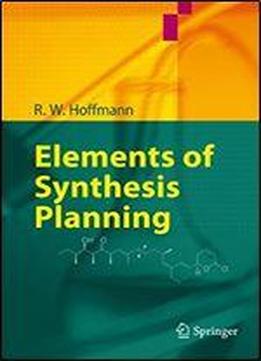
Elements Of Synthesis Planning
by R. W. Hoffmann /
2009 / English / PDF
9 MB Download
Synthesis is at the core of organic chemistry. In order for compounds to be studied?be it as drugs, materials, or because of their physical properties? they have to be prepared, often in multistep synthetic sequences. Thus, the target compound is at the outset of synthesis planning. Synthesis involves creating the target compound from smaller, readily available building blocks. Immediately, questions arise: From which bui- ing blocks? In which sequence? By which reactions? Nature creates many highly complex “natural products” via reaction cascades, in which an asso- ment of starting compounds present within the cell is transformed by speci c (for each target structure) combinations of modular enzymes in speci c - quences into the target compounds [1, 2]. To mimic this ef ciency is the dream of an ideal synthesis [2]. However, we are at present so far from - alising such a “one-pot” operation that actual synthesis has to be achieved via a sequence of individual discrete steps. Thus, we are left with the task of planning each synthesis individually in an optimal fashion. Synthesis planning must be conducted with regard for certain speci - tions, some of which are due to the structure of the target molecule, and some of which relate to external parameters such as costs, environmental compatibility, or novelty. We will not consider these external aspects in this context. Planning of a synthesis is based on a pool of information regarding chemical reactions that can be executed reliably and in high chemical yield











